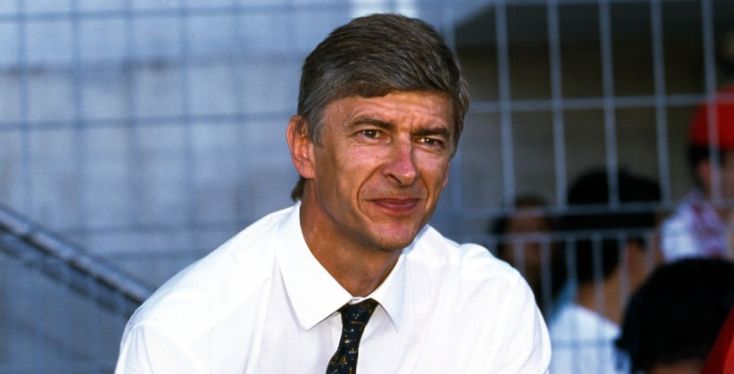Arsène Wenger is a name that resonates deeply with football fans worldwide. Known for his visionary approach to the game, his influence on English football, and his extensive managerial career at Arsenal, Wenger’s legacy extends far beyond the pitch. His journey in the world of football has not only been one of tactical brilliance and managerial success but also one marked by financial achievements and growth. In this blog post, we will explore Arsène Wenger’s net worth in 2024, his financial journey, and the lasting impact he has had on Arsenal and football as a whole.
Arsène Wenger Quick Facts
Here is the information about Arsène Wenger:
| FACT | DETAIL |
| Real Name | Arsène Charles Ernest Wenger |
| Popular Name | Arsène Wenger |
| Gender | Male |
| Birth Date | October 22, 1949 |
| Age | 74 years |
| Parents | Alphonse Wenger (Father), Louise Wenger (Mother) |
| Birthplace | Strasbourg, France |
| Nationality | French |
| Ethnicity | Alsatian |
| Education | University of Strasbourg, Economics Degree |
| Marital Status | Married |
| Wife/Spouse | Annie Brosterhous (m. 2010–2015) |
| Children | Léa Wenger |
| Net Worth | $48 million |
| Source of Wealth | Football management, FIFA, Endorsements |
| Height | 6 ft 3 in (191 cm) |
| Position(s) | Midfielder (Former Player) |
| Foot | Right |
| Current Club | Retired (Former Player) |
| Joined | Jul 1, 1981 |
| Contract Expires | – |
| Team Information | Current Team: Retired (Manager) |
| Avg. term as coach | 6.93 Years |
| Coaching Licence | UEFA Pro Licence |
| Agent | CAA Base Ltd |
| Club & Role | FIFA (Director of Development) |
| Appointed | 19/20 (Nov 13, 2019) |
| In charge until | Expected – |
| Youth Career | ▪️ 1963–1969: FC Duttlenheim |
| ▪️ 1969–1973: Mutzig | |
| Senior Career | ▪️ 1969–1973: Mutzig |
| ▪️ 1973–1975: Mulhouse (56 apps, 4 gls) | |
| ▪️ 1975–1978: ASPV Strasbourg | |
| ▪️ 1978–1981: RC Strasbourg (11 apps, 0 gls) | |
| Managerial Career | ▪️ 1984–1987: Nancy |
| ▪️ 1987–1994: Monaco | |
| ▪️ 1995–1996: Nagoya Grampus Eight | |
| ▪️ 1996–2018: Arsenal | |
| Medal Record | ▪️ Club Titles: French Division 1, Coupe de France, Premier League, FA Cup |
What is the Net Worth of Arsène Wenger in 2024?
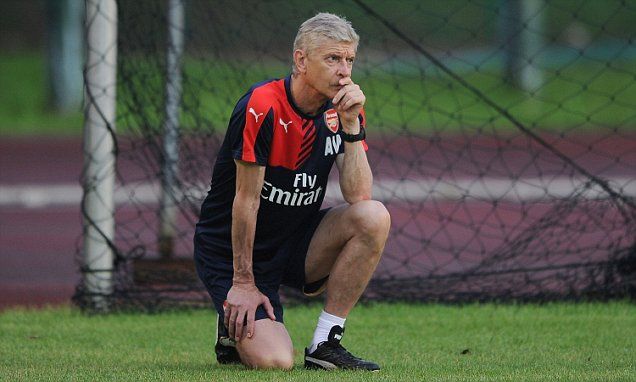
As of 2024, Arsène Wenger’s estimated net worth is $55 million. This wealth has been accumulated over decades of football management, endorsements, and investments. A significant portion of Wenger’s fortune comes from his long and successful Arsenal managerial career, where he earned considerable salaries, especially in his later years with the club.
Breakdown of Wenger’s Net Worth
- Arsenal Salary: Over his 22 years at Arsenal, Wenger earned millions through his contracts, particularly in the latter years as he remained one of the highest-paid managers in the Premier League.
- Endorsements and Sponsorships: Wenger’s commercial deals with brands like Puma, Audi, and others have contributed to his wealth, cementing his status as one of football’s most respected figures.
- Post-Arsenal Roles: Since his departure from Arsenal, Wenger has served as a pundit, author, and advisor, all of which have helped maintain his wealth. His role as FIFA Director of Development also adds to his financial portfolio.
Wenger’s Earnings at Arsenal
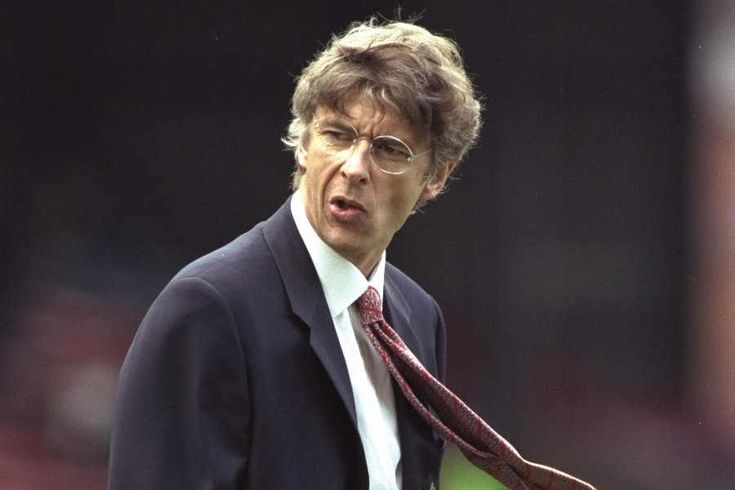
Arsène Wenger’s salary progression at Arsenal reflects his growing stature as one of the most successful and influential managers in Premier League history.
Salary Progression at Arsenal:
- 1996-2000: Wenger’s early years at Arsenal saw a modest salary by modern football standards. His focus was on building a team, often making shrewd signings on a tight budget.
- 2000-2010: As Wenger’s reputation grew with multiple FA Cup victories and an unbeaten Premier League season in 2004, his salary increased significantly. By 2007, his salary had reached £4 million annually.
- 2010-2018: Towards the end of his tenure, Wenger earned around £8 million a year, reflecting both his experience and the high demands of his position, especially as the club moved into the Emirates Stadium with its associated financial pressures.
While Wenger was known for being cautious with Arsenal’s spending on players, his managerial salary was a testament to his importance and success in guiding the team through one of the most competitive eras in English football.
How Wenger’s Contract Has Grown in 22 Years at Arsenal
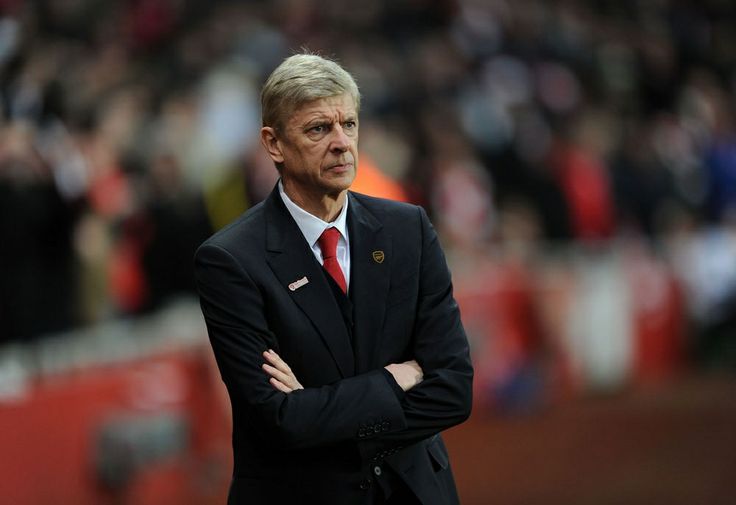
Wenger’s contract at Arsenal was a defining feature of his relationship with the club. Over his 22 years, his contracts grew both in length and in value.
- Early Years: Initially, Wenger’s contract reflected Arsenal’s cautious approach to finance. The club wasn’t in a position to offer extravagant terms, but Wenger was still paid well for his early success.
- Mid-Tenure (2000s): As Wenger began to dominate English football, his contracts were extended and enhanced. This included long-term deals that reflected his pivotal role in shaping Arsenal’s success, including The Invincibles 2004.
- Final Years: By the end of his tenure, Wenger was one of the highest-paid managers in the Premier League. His contract negotiations were often discussed publicly, with fans and critics debating whether the club was paying for past glories or continued potential.
Arsenal’s Transfer Spending Under Arsène Wenger
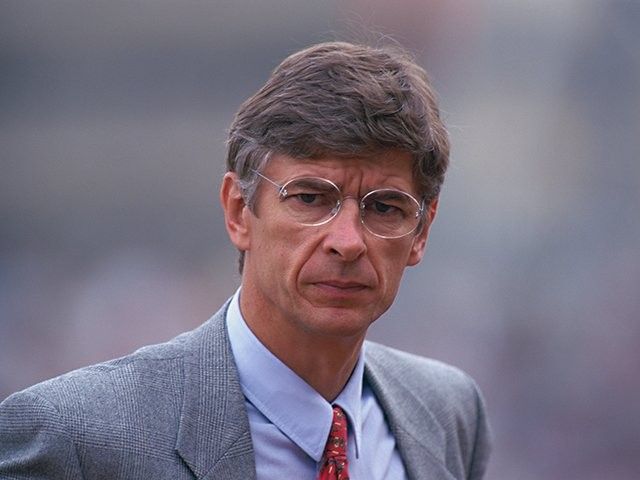
Wenger’s approach to the transfer market is often debated, but his football transfer spending tells a story of caution, vision, and strategic acquisitions. Over the years, Wenger balanced the books while achieving success, even within the constraints of limited funds.
Key Transfer Moments
- Early Years (1996-2000): Wenger’s first signings were on the more affordable side, including the likes of Patrick Vieira and Thierry Henry. These players, purchased for modest sums, went on to become key figures in Arsenal’s rise to dominance.
- The Invincibles 2004: In terms of Arsenal’s net spend, this period saw significant investment, but Wenger’s talent for spotting bargains meant the team was built with a mix of star power and smart buys.
- Post-2006 (Emirates Stadium Move): Arsenal’s move to the Emirates Stadium brought increased revenue, but also significant debt. As a result, Wenger had to adapt his transfer strategies, focusing more on youth player development and buying players with high potential but lower costs.
Despite the challenges, Wenger was able to build competitive teams, including a squad that went unbeaten in the Premier League, marking one of the iconic career moments in football history.
Arsène Wenger’s Managerial Career
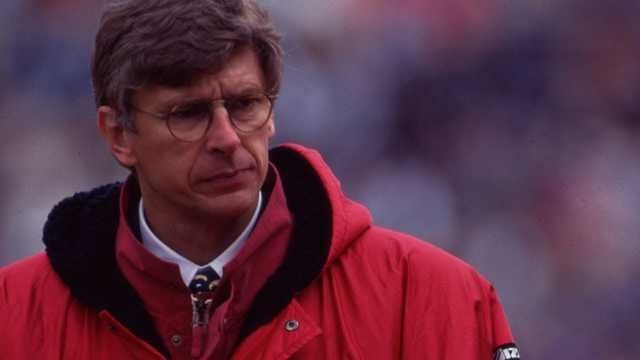
Arsène Wenger’s managerial success stories span more than two decades, during which he reshaped Arsenal and influenced the Premier League. His career can be broken down into several key phases:
Early Success (1984–1996)
Before joining Arsenal, Wenger managed AS Monaco, where he won the Monaco league championship in 1988 and began implementing his football philosophy. His time in Monaco was marked by a focus on tactical flexibility, attacking football, and youth development.
In 1994, Wenger moved to Japan to manage Nagoya Grampus Eight, where he further honed his skills before taking on the Arsenal job.
Arsenal: 1996–2018
First Season: 1996–1997
Wenger’s debut season was filled with challenges, but his impact was immediate. He introduced new training methods, a focus on fitness, and a style of play that emphasized attacking football.
Early Success and the Invincibles (1997–2004)
In 2004, Wenger’s legacy was solidified when Arsenal’s historic moments were marked by the Invincibles 2004 — a team that went unbeaten in the Premier League. This achievement remains one of the most remarkable feats in English football history.
Transition Years at Arsenal (2006–2011)
During these years, Wenger faced growing financial pressures due to the Emirates Stadium debt, but he continued to produce competitive teams despite limited resources.
Returning to Glory (2013–2018)
Wenger’s final years at Arsenal saw some revitalization, with multiple FA Cup victories, and the team making consistent appearances in European competitions.
Wenger’s Managerial Philosophy and Tactics
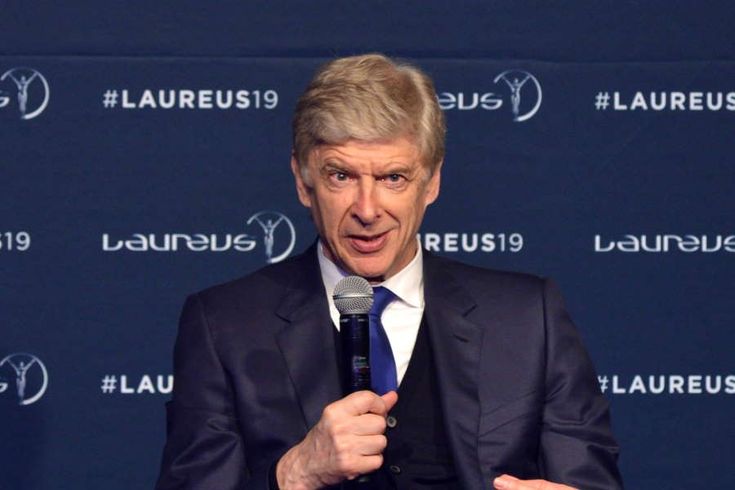
One of the key aspects of Wenger’s managerial approach was his ability to blend tactical acumen with player development.
- Tactics: Wenger believed in fluid, attacking football. His teams played a fast-paced, possession-based game that was designed to break down opposition defenses with quick passing and movement.
- Preparation: Wenger was one of the first to emphasize the importance of fitness and nutrition. His attention to detail in preparation became a hallmark of his tenure.
- Recruitment Strategies: Known for his Wenger’s recruitment strategies, Wenger often scouted talent from obscure leagues, uncovering hidden gems like Cesc Fàbregas, Robert Pirès, and Thierry Henry before they became household names.
Arsène Wenger’s Legacy and Impact on Football
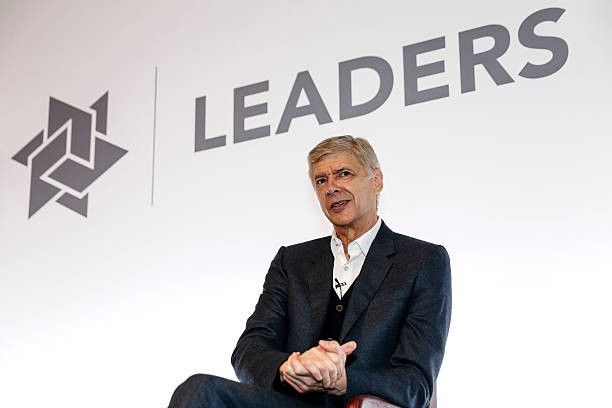
Wenger’s influence on football is undeniable. He introduced new ideas to English football, from diet and fitness to tactical formations. His tenure at Arsenal club finances shaped the future of the Premier League, as other clubs began to follow his lead in developing youth players and managing finances with more caution.
Arsène Wenger’s Milestones:
- The Invincibles (2004): An undefeated season that will be remembered for decades.
- FA Cup Wins: Wenger secured seven FA Cup trophies, more than any other manager in the competition’s history.
- Financial Evolution: Wenger played a key role in modernizing football finances, particularly in how clubs manage spending and debt.
Wenger’s Post-Arsenal Career
After leaving Arsenal in 2018, Wenger’s post-Arsenal career saw him take on multiple roles. He became a commentator, an author, and an advisor to various football organizations. In 2019, Wenger was appointed as the FIFA Director of Development, where he continues to influence the game on a global scale.
Wenger’s Personal Life and Legacy Beyond Football
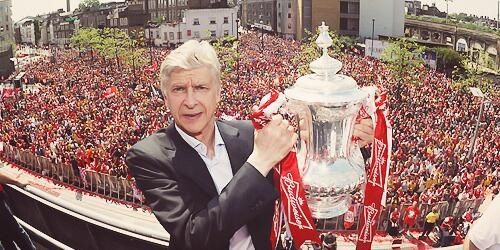
Off the field, Wenger is known for his quiet demeanor, love for philosophy, and dedication to his family. Despite his managerial achievements, Wenger’s personal life remains relatively private.
He is also deeply involved in philanthropy, supporting various causes related to education and youth development.
Wenger’s Influence on English Football
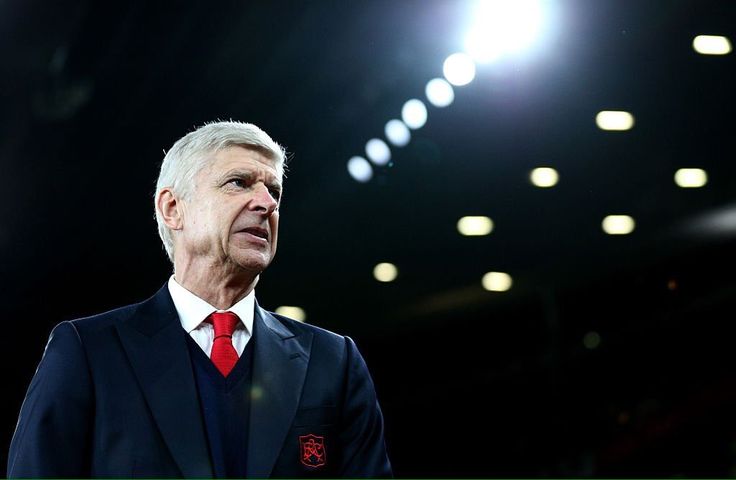
Arsène Wenger’s arrival at Arsenal in 1996 was nothing short of revolutionary. Prior to Wenger, English football was known for its physicality, direct style of play, and limited tactical depth. Wenger, a man of European influence, brought an entirely new approach to the Premier League. His emphasis on tactical sophistication, ball possession, and player fitness transformed not just Arsenal, but the entire English game.
Wenger’s Revolutionary Approach to Fitness and Nutrition
One of Wenger’s most enduring contributions to English football was his emphasis on fitness and nutrition. At the time, the English game was less sophisticated in these areas, and players often focused more on traditional methods of training. Wenger, however, was an early adopter of sports science. He implemented state-of-the-art fitness regimens and dietary plans, ensuring his players were not only technically proficient but also physically prepared to meet the demands of modern football.
He was also one of the first to stress the importance of injury prevention. Wenger’s investment in the health of his players, both mentally and physically, became one of his core beliefs, setting a trend across the Premier League and European leagues alike.
A Model for Football Managers
Beyond his tactical acumen and innovative methods, Wenger’s influence on managerial approaches in the Premier League is significant. Managers like Pep Guardiola, Jürgen Klopp, and Mauricio Pochettino all cite Wenger as a major inspiration in terms of tactical preparation, youth development, and understanding football’s evolving nature.
The modern-day focus on attacking football, high pressing, and fluid tactics can be traced back to Wenger’s early years at Arsenal. While his commitment to these principles faced challenges, especially with financial constraints in the latter years, his legacy as a managerial innovator remains untarnished. His ideas helped shape the Premier League into a more dynamic and tactical league, rather than one primarily driven by physical strength.
Wenger’s Financial Achievements and Legacy
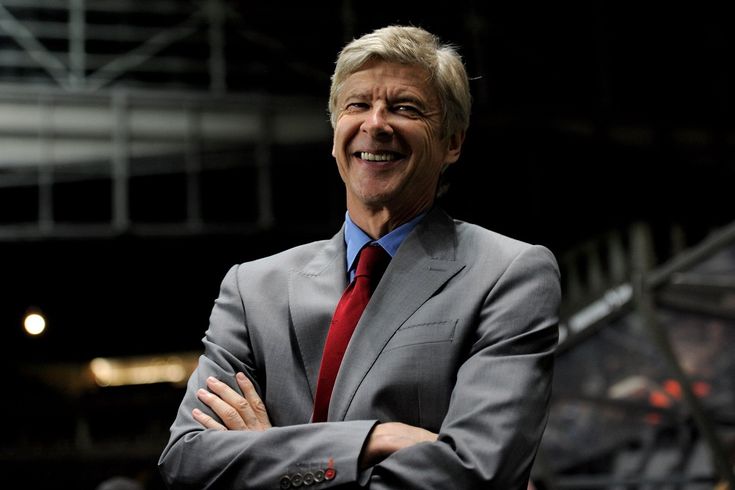
In addition to his tactical brilliance, Arsène Wenger’s influence extended to the financial management of Arsenal Football Club. Under his guidance, the club moved into the Emirates Stadium in 2006, a decision that would define Wenger’s final years at the helm of the club. This move, however, came with significant financial burdens, including a massive stadium debt.
While critics at the time questioned whether Wenger could continue to maintain Arsenal’s competitive edge with the growing debt, he managed to navigate the tricky waters of football’s financial landscape. Despite the limited funds for football transfer spending, Wenger continued to maintain a high standard of football, producing world-class teams that were able to compete on the domestic and European stages. His ability to make the most out of limited financial resources is a testament to his exceptional managerial skill and his football financial evolution.
Moreover, Wenger’s ability to balance the books without compromising the club’s long-term sustainability became a crucial part of Arsenal’s Arsenal club finances strategy. Wenger was not just concerned with winning; he was also concerned with ensuring the club’s financial health, especially given the high level of competition in the Premier League.
Financial Prudence in a New Era
Wenger’s financial prudence meant that he avoided the temptation to overspend on players, focusing instead on Arsenal’s transfer policies, which emphasized scouting young talent and developing them within the club’s system. This youth player development philosophy, combined with Wenger’s understanding of the football transfer market, allowed Arsenal to remain competitive despite the mounting pressures of debt and higher spending by rival clubs.
His commitment to a more sustainable approach to football spending was both a strength and a limitation during his later years. While the Emirates Stadium debt restricted his ability to make big-money signings, it also ensured that Arsenal would not fall into the same financial traps that many other clubs succumbed to, maintaining the club’s integrity.
Wenger’s Influence Beyond Arsenal
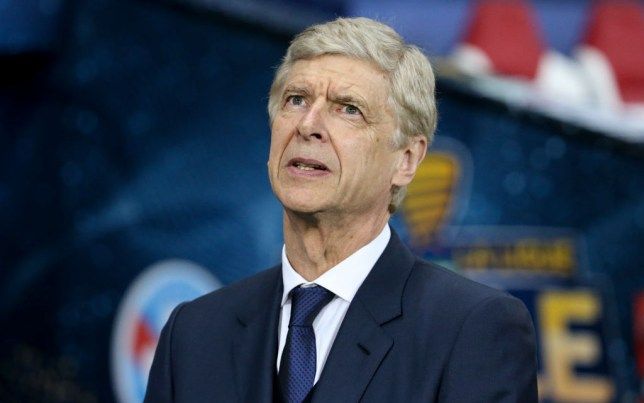
Wenger’s influence on football management is not confined to just one club. After leaving Arsenal in 2018, he continued to contribute to the footballing world in a variety of capacities. His appointment as FIFA Director of Development in 2019 marked a new chapter in Wenger’s career, where he was tasked with shaping the future of football at the global level.
Wenger’s Role at FIFA
As FIFA’s Director of Development, Wenger has focused on promoting football across the globe, particularly in developing nations where the game is growing in popularity but lacks structure. His role involves overseeing coaching education, improving global football governance, and ensuring that the financial and developmental structures of football worldwide are more equitable.
Wenger has consistently advocated for the improvement of coaching standards, the football coaching licenses process, and youth player development on a global scale. His involvement with FIFA also reflects his broader vision for football, one that transcends club allegiances and focuses on the global development of the sport.
Arsène Wenger’s Global Influence
Arsène Wenger’s influence extends far beyond the confines of the Premier League and Arsenal. His managerial career, both at the club and international levels, has positioned him as one of football’s foremost thinkers and strategists. After his time at Arsenal, Wenger’s voice and opinions are still highly respected across the world of football.
Wenger’s Role in International Football Development
One of Wenger’s most profound contributions to global football came with his appointment as the FIFA Director of Development. In this capacity, he sought to extend his philosophies on football development to the world stage. Wenger advocates for a universal approach to football education, pushing for better coaching methods and the development of young talent in underrepresented regions.
Wenger’s work with FIFA centers on creating a more inclusive, global football network. His role also involves improving the conditions for youth player development in developing countries, which he believes are essential for ensuring that football remains an accessible sport worldwide. His commitment to global football education has already yielded several initiatives aimed at bettering grassroots football, ensuring that coaches are well-trained and that young players receive the best possible support.
Wenger’s Tactical Evolution and Legacy
Wenger’s tactical philosophy, developed over decades of experience, has left an indelible mark on football. While he was known for his attacking football, which often prioritized fluidity and ball possession, his tactics evolved significantly throughout his managerial career.
Wenger’s Tactical Shifts Over Time
In the early years of his Arsenal career, Wenger’s teams played dynamic, attacking football characterized by quick passing and movement. This was evident in the legendary Invincibles 2004 season, where Arsenal finished the Premier League unbeaten—a feat that still stands as a testament to Wenger’s tactical brilliance.
As time progressed, Wenger adapted his approach based on the changing demands of football. In the later years of his tenure, he incorporated more defensive solidity, balancing his attacking instincts with the need for resilience. However, his commitment to youth development, technical prowess, and attacking football remained central to his managerial philosophy.
Despite the evolution of his tactics, Wenger’s belief in fluid football and the importance of intelligent ball movement never wavered. He also instilled a high-pressing style of play, which has now become a hallmark of modern football, emulated by several contemporary managers.
The Legacy of Wenger’s Tactical Influence
While the results of Wenger’s tactical experiments were not always immediately apparent, his influence on the game’s tactical evolution is undeniable. Managers like Pep Guardiola, Jürgen Klopp, and Mauricio Pochettino have cited Wenger as a key influence on their own managerial philosophies. The way Wenger employed technical players to dominate possession and press high up the pitch shaped the strategies of future generations of football managers.
Wenger’s Lasting Impact on Arsenal
Wenger’s Arsenal managerial career cannot be discussed without acknowledging his unparalleled achievements and contributions to the club’s identity. Under his guidance, Arsenal witnessed some of their most iconic moments, including their remarkable Invincibles season, their domination of the Premier League, and their groundbreaking move to the Emirates Stadium.
The Invincibles and Arsenal’s Golden Era
Wenger’s Arsenal produced one of the most iconic teams in English football history during the Invincibles 2004 season. This unbeaten league run not only solidified Wenger’s status as a managerial great but also demonstrated the potential of his style of play. Wenger’s ability to mold world-class players like Thierry Henry, Dennis Bergkamp, and Patrick Vieira into a cohesive unit exemplified his knack for recruitment strategies and player development.
While Wenger’s later years at the club saw some lean periods in terms of silverware, his influence on Arsenal’s playing style, club philosophy, and global stature remained significant. Even as Arsenal experienced trophy droughts, Wenger’s emphasis on playing attractive, attacking football ensured that the team remained a prominent force in the Premier League.
Financial Challenges and Arsenal’s Move to the Emirates
One of Wenger’s biggest challenges came with Arsenal’s move to the Emirates Stadium in 2006. The transition, while necessary for the club’s long-term future, came with a significant financial burden in the form of stadium debt. Wenger, however, navigated these challenges with characteristic financial prudence, managing to keep the club competitive while operating within a restricted budget.
His ability to balance Arsenal’s transfer history and finances during this period is one of the key achievements of his managerial career. Even with reduced spending, Wenger was able to sign young talents who would become world-class players, ensuring that the club remained financially stable while continuing to compete at the highest level.
Wenger’s Post-Arsenal Career: What’s Next?
After leaving his position as Arsenal’s manager in 2018, Wenger has maintained a presence in the world of football. He remains involved in numerous initiatives, including his role with FIFA and as a commentator on football tactics and economics. His continuing involvement in football managerial success stories and economic impact in football ensures that Wenger will continue to shape the sport for years to come.
Wenger’s post-Arsenal career includes his continued work in football governance, particularly in helping shape the future of the football financial landscape. As part of FIFA’s leadership team, Wenger advocates for greater equality and sustainability in the global football ecosystem, which remains a critical challenge as the sport’s financial picture continues to evolve.
Social Media Accounts for Arsène Wenger
- Twitter: @ArseneWenger – Official account to stay updated with Wenger’s latest activities, opinions on football, and global football development initiatives.
- Instagram: @arsene_wenger_official – Follow Wenger’s personal updates, insights, and career highlights.
- LinkedIn: Arsène Wenger – Stay connected with Wenger’s professional achievements, especially his role in FIFA and football development.
- Facebook: Arsène Wenger – Official page for updates, photos, and career milestones.
FAQs about Arsène Wenger
How many titles has Arsène Wenger won?
Arsène Wenger won numerous titles during his illustrious career as a football manager. Among the most notable are:
- 3 Premier League titles (1998, 2002, 2004)
- 7 FA Cups (1998, 2002, 2003, 2005, 2014, 2015, 2017)
- Wenger is also known for guiding Arsenal through a legendary 49-game unbeaten run in the Premier League, a feat that remains unmatched in English football. His remarkable managerial record stands as a testament to his innovative approach and leadership.
Is Arsène Wenger still a manager?
No, Arsène Wenger retired from his managerial role at Arsenal in 2018 after a monumental 22-year tenure. Since then, Wenger has continued to influence the world of football through his role as FIFA’s Chief of Global Football Development. His role in football governance involves overseeing global football strategies, including youth development and coaching education.
How old was Arsène Wenger when he left Arsenal?
Arsène Wenger was 68 years old when he left Arsenal in 2018. He stepped down a year before his contract was set to expire. By the time he left, Wenger had managed 823 matches for Arsenal, making him the longest-serving manager in Premier League history. Under his leadership, Arsenal saw monumental successes, including three Premier League titles, seven FA Cups, and a remarkable 49 consecutive matches unbeaten in the Premier League.
Conclusion
Arsène Wenger’s impact on football, both on and off the field, is immeasurable. His managerial career at Arsenal reshaped not only the club but also the wider football landscape. From his managerial success stories to his football financial evolution, Wenger’s legacy is one of innovation, dedication, and success. With his net worth continuing to reflect his achievements and influence, Wenger’s legacy is secure as one of the most significant figures in football history.
As we look back at Wenger’s iconic career moments, we see not just a manager, but a visionary whose ideas continue to shape the future of the game. Whether through Arsène Wenger’s achievements or his influence on the next generation of football managers, his name will always be synonymous with progress, intelligence, and success in football.
Also Read More Article : Didier Drogba Net Worth
